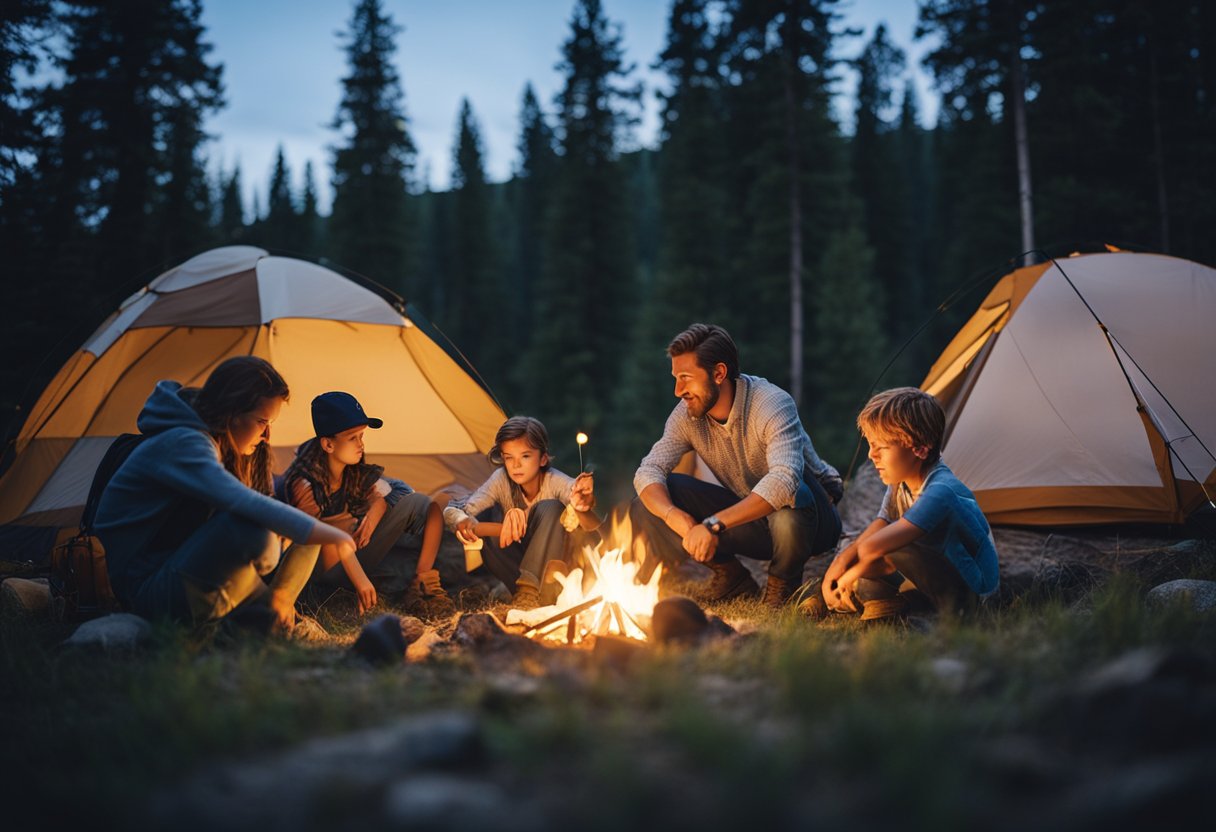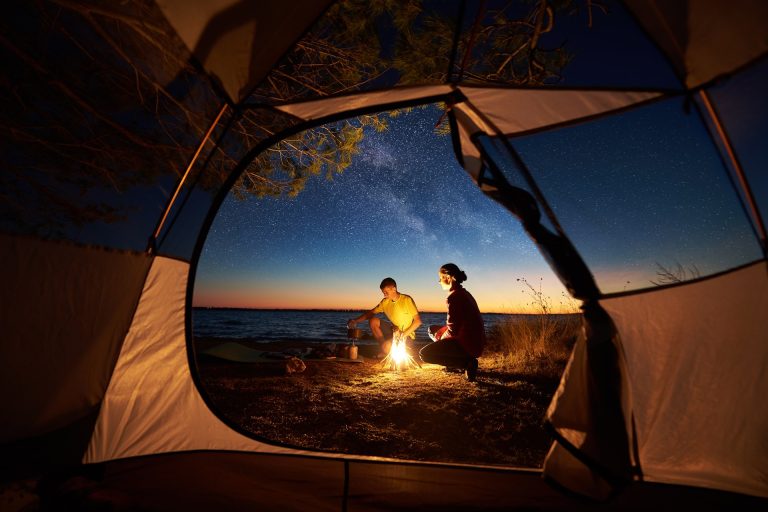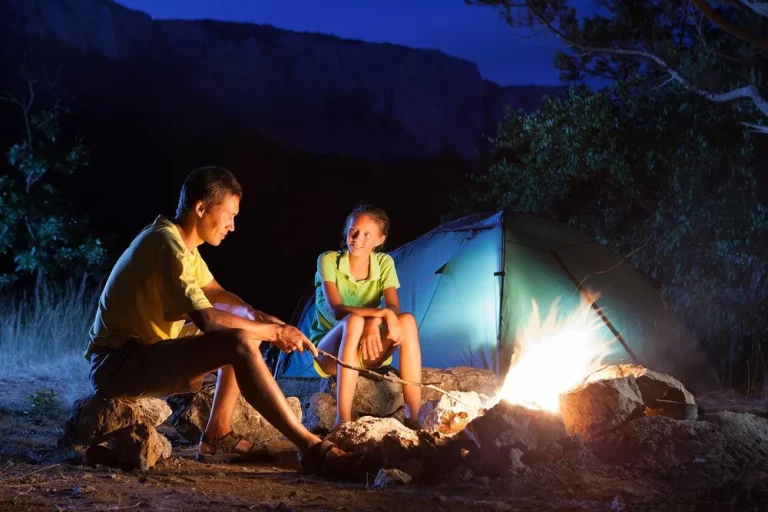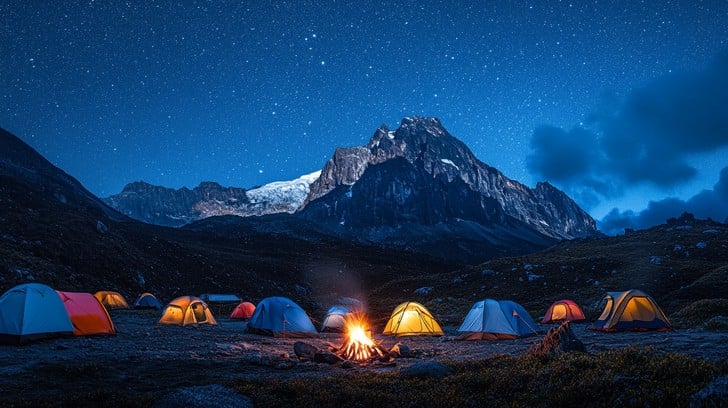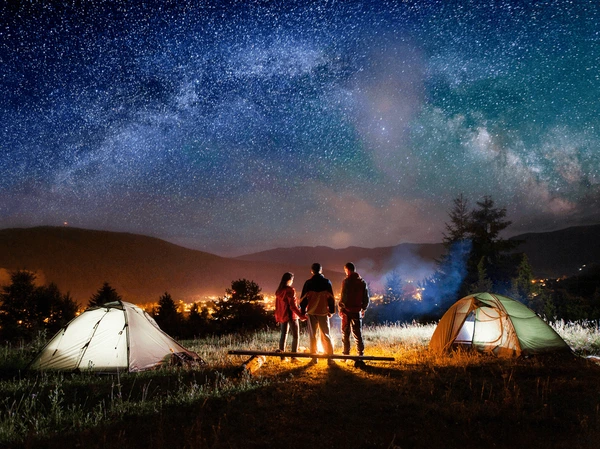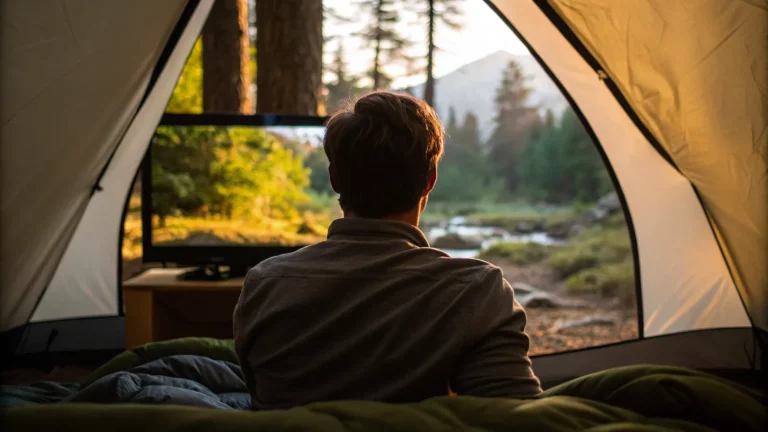Stay Safe Outdoors: Top Camping Survival Strategies
Nothing compares to camping, where you may wake up to the sound of birds, take in the clean mountain air, and watch the stars shine far away from the lights of the city. However, the wild’s unpredictability adds to its allure. It takes more than just a tent and an adventurous spirit to experience nature in a safe way. Survival techniques that keep you ready for anything will be necessary.
Whether you’re a weekend camper or a backcountry explorer, here are the top camping survival tips to help you stay safe outdoors.
1. Shelter Is Your First Priority
Nature is stunning, but exposure to cold, wind, or rain can be dangerous if you’re unprepared.
- Always pack a reliable tent or tarp.
- Learn how to build a simple backup shelter with branches, leaves, or a poncho.
- Choose your campsite wisely — avoid flood-prone areas and spots under unstable trees.
Why it matters: A good shelter keeps you dry, warm, and protected from the elements.
2. Fire: Your Survival Superpower
Fire gives warmth, cooks food, purifies water, and provides light — it’s one of your greatest allies outdoors.
- Carry waterproof matches or a fire starter (and keep them in a dry bag).
- Practice building different fire types like the teepee or log cabin style.
- Always clear flammable debris before lighting up.
Bonus: A fire can also keep wildlife at a safe distance and signal rescuers if needed.
3. Water: Stay Hydrated, Stay Alive
That crystal-clear stream may look refreshing, but untreated water can carry bacteria and parasites.
- Bring a portable water filter or purification tablets.
- If you have no gear, boiling water is your safest bet.
- Always refill your bottles before setting off on hikes.
Survival fact: You can survive weeks without food but only a few days without water.
4. Navigation Skills Save Lives
Phones and GPS devices are helpful — until batteries die or signals vanish. Old-school navigation is still essential.
- Pack a map and compass, and practice using them.
- Mark landmarks as you walk to keep your bearings.
- If you get lost, stop, breathe, and stay put to make rescue easier.
5. Be Wildlife-Smart
Animals are part of the camping experience, but keeping them wild — and you safe — is key.
- Store food in sealed containers or hang it away from your campsite.
- Never feed wildlife (it makes them bold and dangerous).
- Learn which animals live in your area and how to react if you encounter them.
6. Don’t Skip First Aid
Accidents happen — but a well-stocked kit can make the difference between a small setback and a big problem.
- Essentials: bandages, antiseptic, tweezers, pain relievers, and blister care.
- Learn to treat common outdoor injuries like cuts, sprains, or insect bites.
- Know the signs of hypothermia, dehydration, and heatstroke.
7. Pack Smart, Pack Light
Overpacking slows you down; underpacking leaves you unprepared. The trick is balance.
- Must-haves: knife/multi-tool, flashlight with extra batteries, rope, whistle, and extra clothing layers.
- Choose gear that’s lightweight and multi-purpose.
- Test your gear before your trip — the wild is no place for trial and error.
Final Thoughts
Camping survival isn’t about expecting the worst — it’s about being ready for anything. With the right strategies, you’ll not only stay safe but also enjoy the freedom and wonder that the outdoors has to offer.
So before your next trip, check your gear, sharpen your skills, and remember: the best camping memories are made when you’re prepared.

